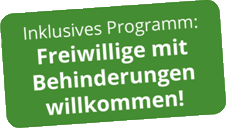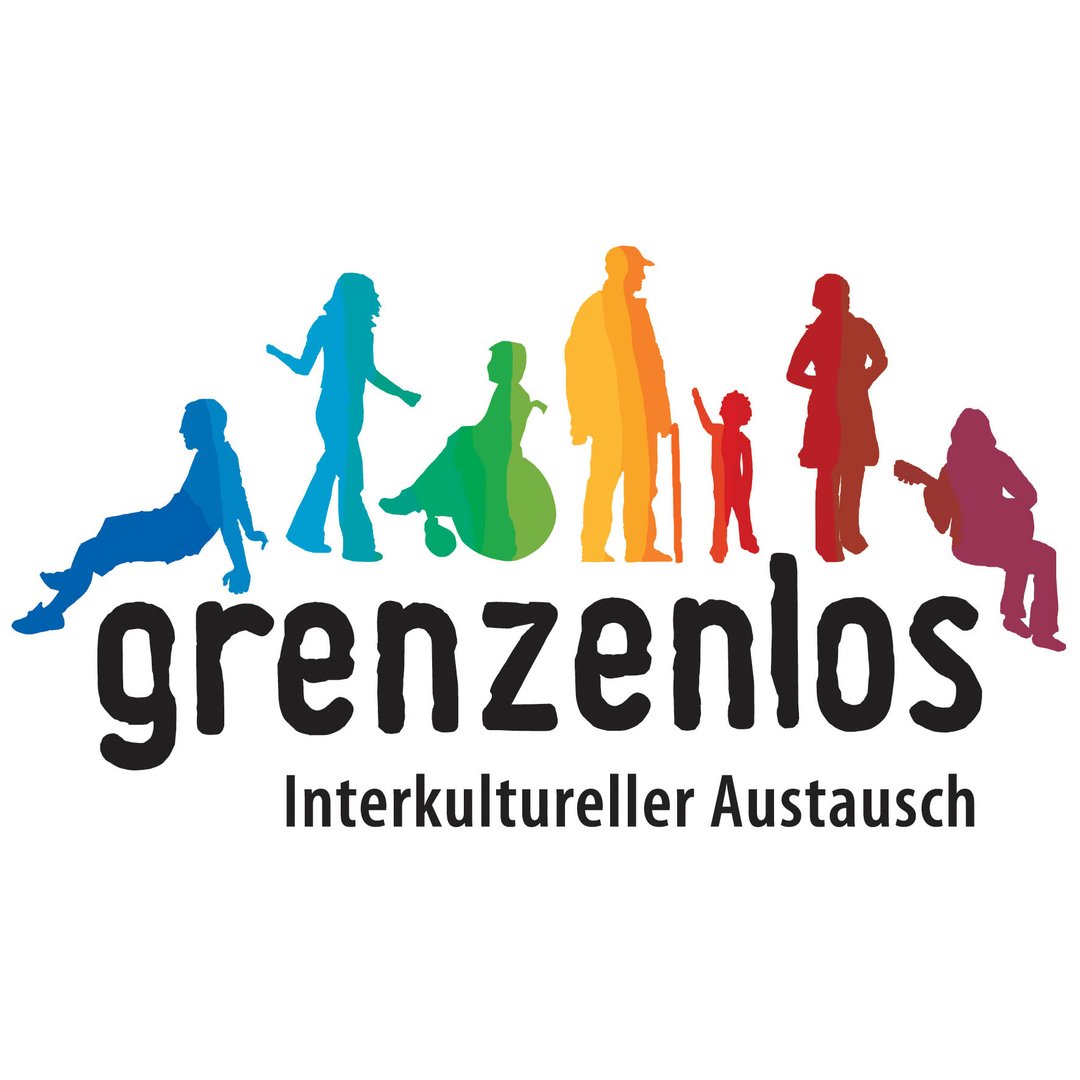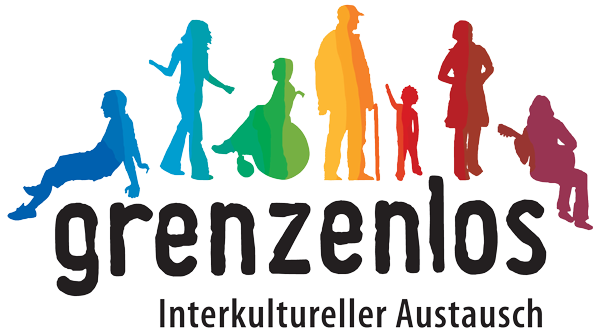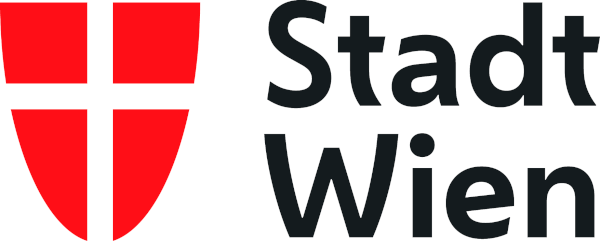European Solidarity Corps is part of the EU-Programme Erasmus+: Youth in Action. It provides you the opportunity to go abroad from 2 to 12 months (in special cases from 2 weeks to 2 months) and contribute to a non-profit project.
Participation in the European Solidarity Corps is free of charge for you. Accommodation, food, pocket money, insurance and a language course are organized and financed. Outward- and return journey will be covered by a flat rate, occasionally this can result in a deductible.
Who can participate?
You can do voluntary service if you are between 17 and 30 years of age and living in Austria (or another EU member or accession country). You don’t have to have the Austrian citizenship, being registered in Austria is sufficient.
The European Solidarity Corps in Vienna is the Melange programme. Melange enables a special preparation and support before, during and after an European Solidarity Corps project. The programme is carried out by Grenzenlos in close cooperation with the association wienXtra and the city of Vienna.
Whether you have finished school, are studying or working, doing an apprenticeship, are looking for a job or doing none of that, doesn’t matter. You don’t need any special education or professional training, no certain proficiency with foreign languages to participate in the European Solidarity Corps. The sole requirement is to attend an information event and an application.
Young people who have not completed their formal education, have a disability or are in a difficult situation in life (e.g. without a job, not finished school, problems at home …) will be supported in particular.
What is the duration of the voluntary service?
One European Solidarity Corps-period lasts between 2 and 12 months, in specific cases shorter periods are possible. This may be the case, for example, if it is the first time for you to go abroad and you are speaking no foreign language (not even English), or if you are a wheelchair user or need some special support for other reasons – if the location of your placement should meet specific requirements or your service has to be prepared particularly well.
Where do such projects exist?
You can do European Solidarity Corps in all EU member countries.
- (Austria), Belgium, Bulgaria, Denmark, Germany, Estonia, Finland, France, Greece, Great Britain, Ireland, Italia, Croatia, Latvia, Lithuania, Luxemburg, Netherlands, Malta, Poland, Portugal, Rumania, Spain, Sweden, Republic of Slovakia, Czech Republic, Hungary and Cyprus.
Above that, the following countries are possible:
- Liechtenstein, Norway, Iceland, Switzerland, Macedonia, Turkey;
- Albania, Bosnia and Herzegovina, Kosovo, Montenegro, Serbia, Armenia, Azerbaijan, Georgia, Moldova, Ukraine, Belarus;
- Algeria, Egypt, Israel, Jordan, Lebanon, Morocco, Palestine, Tunisia (at this moment, there is no cooperation with these countries)
- Russia
What will be the work during an European Solidarity Corps placement?
There are projects within the areas of social issues, environment, sports and recreation, art and cultural issues and media. The major part of the projects takes place in the social sector (work with children and youths, with people with disabilities, old people, refugees…). What all projects have in common, is that they are charitable and non-profit and offer own tasks for volunteers. There is a project database where you can look for European Solidarity Corps-projects in Europe.
You will work about 30 hours per week for the project and, dependending on the duration of your service, you can take holiday (two days per month of service). You will not serve as substitute for regular labour. Your main qualification is your engagement.
Spending up to one year abroad will provide you the possibility to gather experiences and go through precious personal changes.
“One year abroad is not different form climbing up a rock face. The programme is the rope hanging beside you. Some will use it to cling on, for others it will help to climb up. Some are more in need of it than others. No matter how you use it, you have to climb alone.” (Hannes Rüdisser, European Solidarity Corps volunteer)
You can find examples of European Solidarity Corps placements in the volunteer´s forum.
Which organisations are involved?
The grant application will be signed by 2-3 persons respectively organisations. These are Grenzenlos as the sending organisation (on your behalf as volunteer), the receiving organisation and a possible coordinating organisation abroad. Normally, you are in contact with these two organisations. Above that, there are national agencies all over Europe. They are responsible for the proper implementation of the European Solidarity Corps programme and award the EU subsidies for the European Solidarity Corps.
The national agency in Austria is the Intercultural Centre (interkulturelles Zentrum). You can get more information on that during the information afternoon.
Important information for us and the project
If you suffer from illnesses or allergies, for which you need constant or medical support from time to time, you should in any case talk to your doctor and inform Grenzenlos. We will treat this information confidentially, but we have to organise the necessary measures with the receiving project.
If you keep such information a secret and this causes problems, the receiving project is obliged to immediately organise your premature return. Be aware that you bear the sole responsibility for your health!
Basically, there are no health problems which stand against a participation. Because the receiving projects bear a high degree of responsibility for their volunteers, staff and clients predominantly, it is essential for them to be able to get properly prepared.
Which services will I receive?
Following will be a list of services, which you will receive:
Seminars
You will be invited for a Pre-departure Training, an On-arrival Training and a Mid-term Meeting in the country of your engagement. The Pre-departure Training normally takes place on a weekend in the month of your departure. Participation in the Pre-departure Training is obligatory or you are not allowed to leave.
Travel
Your outward- and return journey will be supported financially through a travel lump sum. Sometimes, all expenses can be covered, in some cases there will remain a deductible. Flights or journeys by train are always booked in accordance with the sending organisation and the coordinating organisation.
Only such expenses will be covered, which effectively result from your outward and return journey. That means that if you want to visit your family at home during your holidays, you have to buy a ticket on your own (and pay it). Journeys within the country of your residence are not covered by the programme.
Accommodation
Accommodation will be provided to you by the project. This can vary, depending on the project: you can live “in the project”, e.g. a refugee centre where you work, in a students´ hostel, with a host family or in a shared apartment together with other volunteers. Maybe you will share your room with other people. The kind of accommodation is not freely selectable and oriented towards the possibilities of your project. So always ask the project application for this issue and take it into account in your project selection process.
Food
Food is also organized by the project. Either you will have the possibility for food in the project, e.g. in the children´s group you are working in, or you are paid meals costs. In case you have certain dietary habits or food allergies, you should announce them to the project before your departure.
Local transport
Local transport has to be organised by the project, also. This means transport from your accommodation to your project (if you are not living in the project anyway). This could be a ticket for the local bus or a bicycle, for example.
Pocket money
You will receive pocket money monthly. The amount is different in each country and depends on the living costs in the respective country. In Austria this is 115 € per month. It is recommended to open a bank account in your host country, where the pocket money will be transferred to. Exceptionally, it can be paid in cash.
Language course
A language course will be organized by the project. This can be an intensive course in the beginning of your placement or an ongoing course, a course at the university or a private class.
For projects with the main languages English, French, Italian, Dutch or Spanish, additionally there is an Online Linguistic Support (OLS). For your participation in this Online-language-course you will receive the access data after the approval of your project. So you can check your language competency and get a course which is adapted to the level of your language skill.
The online course is only a support for your language acquisition and does not substitute the language course in the country of your project.
Insurance
You are insured during your voluntary service. The insurance is compulsory and the same for all volunteers. It encompasses health-, accident-, and liability insurance. At first, you have to cover the costs for a doctor´s visit or (certain) medication by yourself and will get them refunded by the insurance. For this, you have to keep the bill and submit them via a form to the insurance. If there are higher expenses, for example a hospital stay, the insurance will settle this with the hospital directly.
You can find more detailed information on your insurance benefits in the folder, which will be sent to you together with your insurance card and during your Pre-departure Training.
Mentor
The mentor is your point of contact in the project, especially if questions or difficulties occur. This person is in command of the corresponding language skills (at least English) and is also experienced in the work with volunteers. Of course you can contact us, but the most problems are better solved on the spot (of the project). For having a good time with the European Solidarity Corps, it is important to communicate problems on time. Don´t forget to arrange your holidays and days off with your hosting project.
Certificate
At the end of your European Solidarity Corps you will receive a certificate, the Youthpass. On the one hand, this document confirms your participation and the time period. On the other hand, you can document your learning success during your time with the European Solidarity Corps.




 Kontakt
Kontakt Infonachmittag
Infonachmittag






